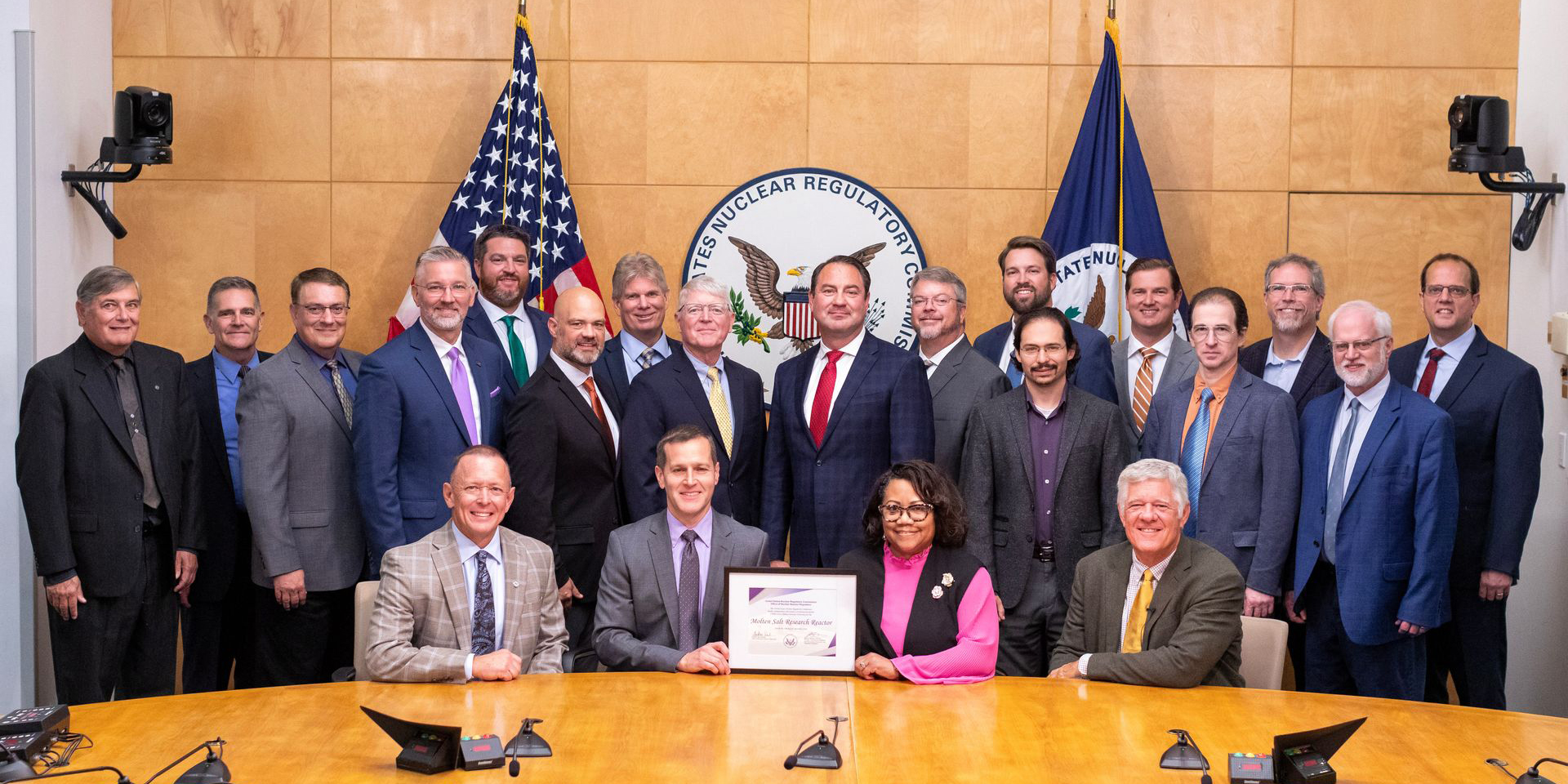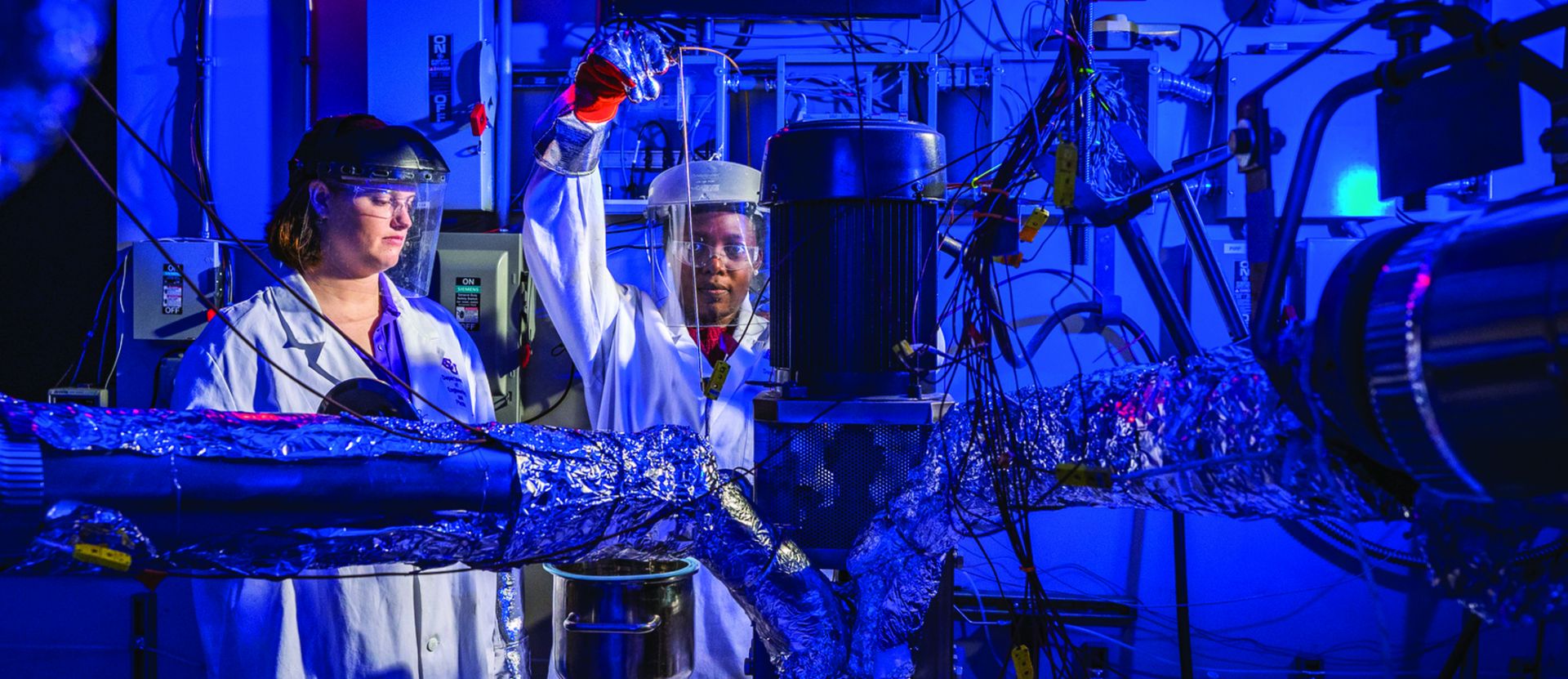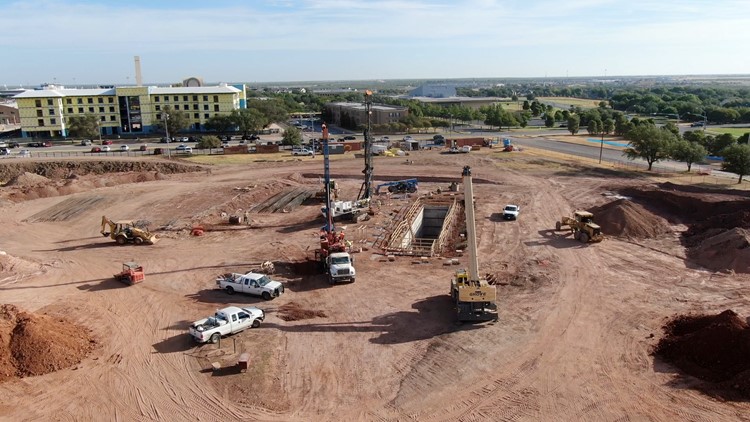Representatives from Natura Resources, the Zachry Group, Abilene Christian University, the University of Texas–Austin, Texas A&M University, and the Georgia Institute of Technology with the construction permit at NRC headquarters. (Photo: Natura Resources)
The Nuclear Regulatory Commission issued a construction permit yesterday to Abilene Christian University, giving ACU and its partners the go-ahead to build the Molten Salt Research Reactor (MSRR) facility on its Abilene, Texas, campus. The 1-MWt research reactor is the first molten salt–fueled reactor to get a construction permit from the NRC. After Kairos Power’s Hermes, it is the second non–light water reactor construction permit issued by the NRC.
Concept art of ACU’s NEXT Lab. (Image: ACU)
Natura Resources, which is supporting the construction of a molten salt research reactor on the campus of Texas’s Abilene Christian University, announced in mid-June that it expects the Nuclear Regulatory Commission to complete its safety assessment and issue a permit for the nonpower test reactor in September.
Research engineers take a sample of molten salt for the NEXT Lab. (Photo: Jeremy Enlow/Steelshutter)
The Nuclear Energy eXperimental Testing (NEXT) Laboratory at Abilene Christian University in Texas created quite a bit of buzz within the nuclear community in August when it submitted the first application for a new U.S. research reactor in more than 30 years. The construction permit application submitted to the Nuclear Regulatory Commission is for a molten salt research reactor (MSRR)—the first-ever university application for an advanced research reactor. Assuming NRC acceptance of the application, which could happen this year, a formal technical review of the lab’s MSRR plan will then begin, and construction of the MSRR could be completed by 2025. The Abilene campus’s new Science and Engineering Research Center—a 28,000-square-foot multiuse facility for chemistry, physics, and engineering research and education—is expected to be completed by July 2023 and will house the advanced reactor. The final step is to obtain the NRC operating license for the MSRR and commence operation.
Construction of the new Science and Engineering Research Center is underway on the ACU campus. (Photo: ACU)
The Nuclear Energy eXperimental Testing (NEXT) Laboratory at Abilene Christian University in Texas submitted a construction permit application to the Nuclear Regulatory Commission for its molten salt research reactor (MSRR) on August 15. According to ACU, the move represents the first application for a new U.S. research reactor of any kind in more than 30 years, as well as the first-ever university application for an advanced research reactor.
An artist rendering of the Science and Engineering Research Center under construction at Abilene Christian University. The SERC will house the NEXT Lab's new advanced university research reactor sponsored by Natura Resources.
The first university-based molten salt research reactor (MSRR) is one step closer to reality with Abilene Christian University’s Nuclear Energy eXperimental Testing (NEXT) Laboratory recently signing a contract with Teledyne Brown Engineering. After considering more than a dozen engineering firms, the NEXT Lab selected Teledyne Brown to perform the front-end engineering and design work to produce the reactor on the Abilene campus. The contract was described by NEXT Lab director Rusty Towell as “a significant step into the detailed design and construction phase of this project.” The hope is that the 1-MWt MSRR will go critical in 2025.






.jpeg)